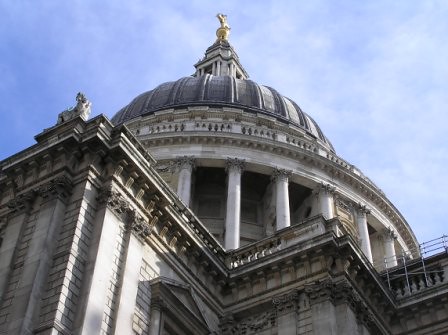 For most of my life, I've held to "believers only" baptism (i.e. usually adult, or at least older children). But tomorrow, I am having all three of my children (aged 4.5 yrs, 2 yrs and 5 mths) baptised. Why am I doing this?
For most of my life, I've held to "believers only" baptism (i.e. usually adult, or at least older children). But tomorrow, I am having all three of my children (aged 4.5 yrs, 2 yrs and 5 mths) baptised. Why am I doing this?
I am doing this because I have come to quite firmly believe that Christian believers should baptise their children. [Note, I still do not think unbelievers or "nominal Christians" should baptise their children; it is that practice that turned me off infant baptism for so long.]
Why do I now think this? I could go on for ages, and I'm not sure I'm yet able to articulate this as well as I'd like to, but here's five reasons:
1. The starting point is to say that baptism itself is important. On its own, the mere splashing or pouring or immersing in water may not necessarily mean much, but what that water points to are things of profound and amazing wonder - the washing away of sin, our burial and resurrection with Christ, and the pouring of God's Spirit into our hearts. In the New Testament, baptism was the expected norm for the Christian, the sign that you belonged to God and were part of his community. I could go on. But the point is, we too often undervalue baptism (some can also overvalue it) but it is a wonderful thing because it points to even greater things.
2. I believe that Jesus's great commission of making disciples of all nations, baptising them and teaching them to obey all he had commanded, starts at home with our own family - we are to baptise and teach our children, that they too might be disciples of Christ. Indeed, we should treat them as little disciples from day 1. We treat them as part of God's family, part of the church. We don't treat them as pagans requiring conversion, but as little Christians requiring discipling.
3. It is often said that there is no precedent in the New Testament of children or infants being baptised. Putting aside the various "households" being baptised that are referred to in the book of Acts, this argument misses the whole point of Acts. The book of Acts is all about new converts, the first generation of believers. It was groundbreaking stuff. There is nothing in the New Testament that discounts the possibility that the second generation, the children of those first believers, were baptised. Indeed, the references to households being baptised suggests that is exactly what happened.
4. One difficulty with so-called believers baptism is our definition of "belief" or "faith". We seem to require a faith that is sufficiently mature before qualifying for baptism. Why is not the faith of a three year old who knows that Jesus is God not sufficient faith? Do they have to be able to articulate the doctrine of penal substitutionary atonement to qualify? What about the little two year old who says a simple grace of "Dear God, dinner, Amen" - why is not that simple trust in God sufficient? Where do we draw the line? In my mind, the only logical time to baptise the child of a Christian family, who will hopefully never know a time when they did not know Jesus, is as an infant.
5. But in any event, ultimately baptism is not about my choice, my decision, my faith. What I love about infant baptism is that it shifts the emphasis to God's choice, God's decision and God's faithfulness. Just as the initiative in the baptism comes from outside the child, so too does the initiative in salvation come from outside ourselves. Our salvation is not about our own faith, but about God's faithfulness. Baptism, and especially infant baptism, points to this.
 1. St Paul's Cathedral - a postcard can never do it justice. Amazing piece of architecture and awe inspiring size. Also went to Sung Eucharist - not usually my thing, but if you're going to do it, you might as well do it somewhere like St Paul's and get the full aesthetic experience! (though shame about the wishy washy sermon)
1. St Paul's Cathedral - a postcard can never do it justice. Amazing piece of architecture and awe inspiring size. Also went to Sung Eucharist - not usually my thing, but if you're going to do it, you might as well do it somewhere like St Paul's and get the full aesthetic experience! (though shame about the wishy washy sermon)

 4. Trafalgar Square - I virtually stumbled into Trafalgar Square by accident, my map not clearly marking it out, and suddenly I realised I was standing in the middle of a famous postcard. A great place for gathering of crowds, and a central point for so many other landmarks.
4. Trafalgar Square - I virtually stumbled into Trafalgar Square by accident, my map not clearly marking it out, and suddenly I realised I was standing in the middle of a famous postcard. A great place for gathering of crowds, and a central point for so many other landmarks. 5. The Tube - loved it. I loved the challenge of navigating my way round its tangled, yet somehow quite efficient, web. Trains every 4 minutes - something Sydneysiders can be very jealous of! You can get anywhere on this!
5. The Tube - loved it. I loved the challenge of navigating my way round its tangled, yet somehow quite efficient, web. Trains every 4 minutes - something Sydneysiders can be very jealous of! You can get anywhere on this!








